
Dalpiciclib combined with endocrine therapy significantly enhances progression-free survival in HR+/HER2– breast cancer, as shown in the DAWNA-A trial.

Dalpiciclib combined with endocrine therapy significantly enhances progression-free survival in HR+/HER2– breast cancer, as shown in the DAWNA-A trial.

States have expanded access to over-the-counter ivermectin, raising concerns among health experts about safety, misinformation, and self-medication risks.

Obesity and high-fat diets enhance the aggressiveness of triple-negative breast cancer through exosome-mediated mechanisms, revealing new therapeutic targets.

New research highlights the lower infection risk with zanubrutinib compared with venetoclax in CLL/SLL treatment, offering safer options for patients.

New data reveal isatuximab-based therapy achieves high MRD-negativity rates in newly diagnosed multiple myeloma.

Research reveals that combining radiotherapy or immune-modulating drugs with CDK4/6 inhibitors enhances treatment efficacy in HR+/HER2– breast cancer.

Funding cuts to public health agencies threaten to worsen chronic diseases and ignite infectious disease outbreaks, straining health care systems nationwide.

LeAnne Kennedy, PharmD, BCOP, CPP, FHOPA, discusses the new outpatient transplant program at Atrium Health Wake Forest Baptist in North Carolina.

Research reveals a link between estrogen plus progestin hormone therapy and increased breast cancer risk in young women, urging personalized treatment approaches.

LeAnne Kennedy, PharmD, BCOP, CPP, FHOPA, discusses the new outpatient transplant program at Atrium Health Wake Forest Baptist in North Carolina.

CARTITUDE-1 trial reveals cilta-cel's potential in achieving long-term remission for relapsed/refractory multiple myeloma, sparking discussions on curative possibilities.

The data revealed that only 75% of patients receive HER2-targeting therapies.

Pulmonary hypertension significantly increases the risk of disease progression and cardiovascular events in patients with myelofibrosis, emphasizing a need for routine screening.

Ropeginterferon alfa-2b shows promising results in treating preprimary myelofibrosis, enhancing clinical responses and safety in patients.

INCB057643 shows promise in treating myelofibrosis, enhancing anemia and symptom relief.


The agent continues to show promising clinical benefit despite being pulled from the market in 2023.
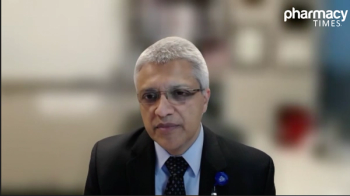
Shaji Kumar, MD, shares data and insights from the phase 2 RedirecTT-1 study.

Pharmacy experts share the benefits of the annual Oncology Pharmacists Connect meeting.

Combining benmelstobart and anlotinib shows promise for patients with squamous non-small cell lung cancer.
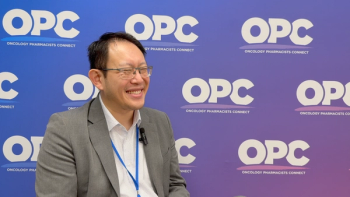
Kevin Chen, PharmD, MS, BCOP, CPP, highlighted key thoracic cancer advances from the 2025 ASCO Annual Meeting.
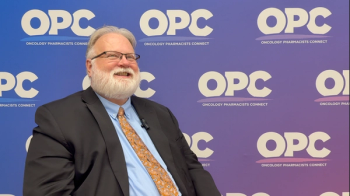
Scott Soefje, PharmD, MBA, BCOP, shares insights about the evolving role of pharmacists at the 2025 OPC meeting.
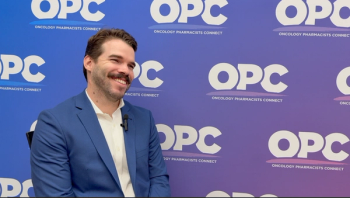
Gabe Hinojosa, PharmD, BCOP, shares key data for pharmacists from the 2025 American Society of Clinical Oncology Annual Meeting.

Datopotamab deruxtecan gains FDA approval, offering new hope for adults with advanced EGFR-mutated non-small cell lung cancer after prior therapies.
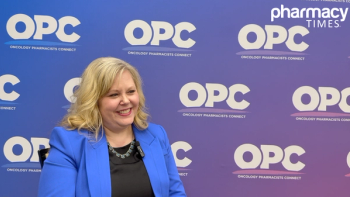
Heidi Finnes, PharmD, BCOP, FHOPA, discusses the evolving landscape of treatment of cutaneous malignancies.
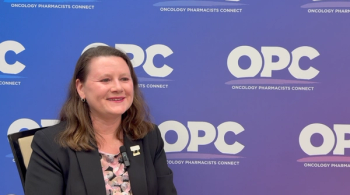
Jolynn Sessions, PharmD, BCOP, FHOPA, shares her experience as a clinical pharmacist and the value of the Oncology Pharmacists Connect meeting.
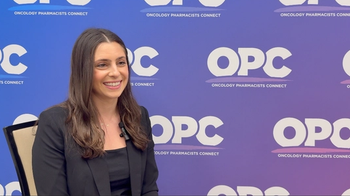
Victoria Nacher, PharmD, BCOP, offers key insights about the evolving treatment landscape for hematologic malignancies.

The emergence of biomarkers plays a critical role in the growing success of treatment.

Tim Mok, PharmD, BCOP, BCPS, discusses emerging advancements in treatment of leukemia and lymphoma.

Talquetamab and teclistamab showed significant promise in a phase 1b/2 dose escalation and expansion trial.